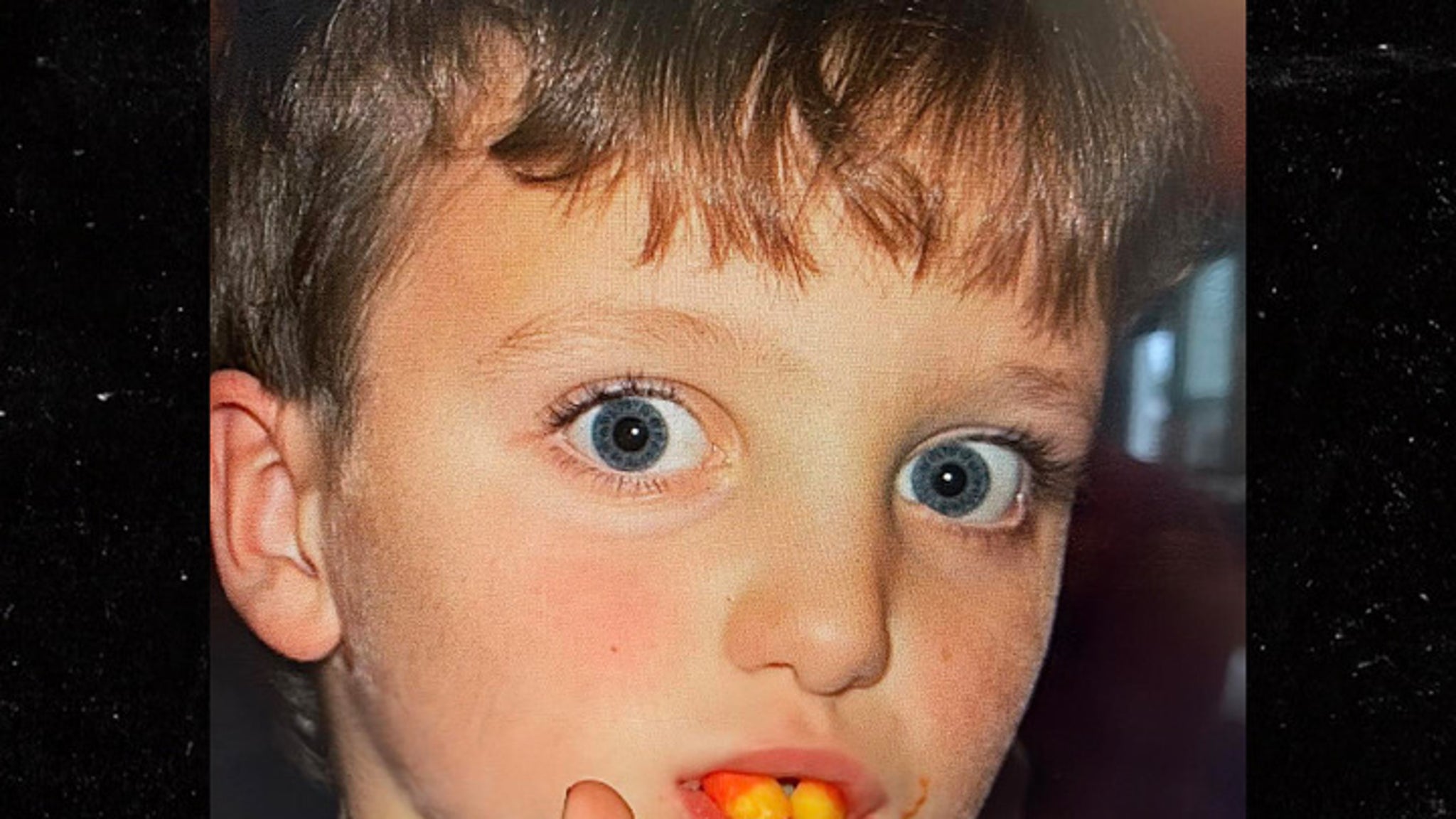Culture
2025 Grammys: Best and Worst Moments

The most awards at the 67th annual Grammys went to Kendrick Lamar, who swept the biggest song prizes with his Drake diss “Not Like Us” on his way to five trophies. But the story of the night was Beyoncé, who after losing album of the year four previous times, won for her genre study “Cowboy Carter,” becoming the first Black woman since 1999 — and fourth in the show’s history — to take home the top honor. Chappell Roan triumphed in best new artist and advocated for artists’ rights in her acceptance speech. And the show worked to balance celebration with a different imperative: raising money for those impacted by the wildfires that recently devastated parts of Los Angeles. Here are the show’s highlights and lowlights as we saw them.
Best Onstage Quasi-Rave: Charli XCX and Friends
The final performance at the Grammys, right before the announcement of album of the year, is a thankless slot — the show is invariably running long, and there’s an itchiness to move quickly. But Charli XCX, who won three Grammys in genre categories Sunday night, used it to bring some after-hours sweat and raunch to a show that had largely been reverent and dignified. She strode in flanked by the tastemaker supermodels Alex Consani and Gabbriette, then merged with an onstage dance party that despite its contrivance nevertheless felt frisky and reckless, populated with a who’s who of the New York and Los Angeles creative elite: Julia Fox, the Dare, Richie Shazam, Niki Takesh, Quen Blackwell and more. It was a brat ending (and presumably, the ending of “Brat”). JON CARAMANICA
Best Industry Welcome: New Artist Nominees
Best new artist nominees haven’t always gotten the best exposure on the Grammys. Too often, they’ve been sidelined or squeezed into medleys and snippets. But with contenders who have racked up hundreds of millions of streams, this year the show trusted their star power and lavished them with production values and stage time. Sabrina Carpenter and Chappell Roan each got big song-and-dance numbers, and the other competitors held forth in a long, elaborate segment that — for once — didn’t cram their songs together.
Although Khruangbin’s leisurely psychedelic vamps didn’t have much impact, Benson Boone showed off gymnastic flips and a powder-blue jumpsuit along with the melodramatic buildups of his billion-streaming song “Beautiful Things.” Doechii had been tearful and unguarded when she accepted the Grammy for best rap album. But she was pure physical precision when she was dancing — choreographed with a phalanx of robotic dancers — and rapping through “Catfish” and “Denial Is a River.” No athletics were required from Teddy Swims, who emoted through the crescendos and melismas of “Lose Control,” and Shaboozey was surrounded by dancing cowgirls and cowboys to mute the bitter undertone of “A Bar Song (Tipsy).” Raye, the English songwriter who carries the tartness of Amy Winehouse into retro territory, had a mini-orchestra in formal wear behind her as she belted the mocking kiss-off “Oscar Winning Tears.” For once, the new prospects got first-class treatment. JON PARELES
Best Throwback Slapstick: Sabrina Carpenter
For the entire run of her breakthrough album, “Short n’ Sweet,” Sabrina Carpenter has played with vintage pinup girl aesthetics, delivering her slyly modern pop in a classic package. For her first-ever Grammys performance, she leaned into that playful take on the past, rearranging her hits “Espresso” and “Please, Please, Please” to fit a Ginger Rogers revue, complete with a sparkly tuxedo dress, costume change and tap-dance break. Picking up where her Netflix Christmas special left off, Carpenter sold it with variety show humor, including a yelp of pure joy as a backup dancer spun her around. Afterward, even the night’s emcee, Trevor Noah, had to admit she was eating his lunch comedically. Maybe she can host next year? JOE COSCARELLI
Most Charismatic Presenter: Cardi B
Even on her way to the mic, in full bombshell get-up, she was hamming it up. Then: “How y’all doiiiiiiinnnggg?” Cardi B, who has not released an album since her Grammy-winning 2018 debut, didn’t need music to make her presence felt, as she carried more charm in a single acrylic than many of the stars on display all night. (Honorable mention: Miley Cyrus, who brought the same presence to her brief appearance.) After noting that rap changed her life, Cardi presented the award for best rap album to Doechii, only the third woman to win it after Lauryn Hill and Cardi herself, and one who gamely grabbed the winsome baton in her speech. Maybe they can host next year! COSCARELLI
Most Earnest Memorial: A Tribute to Quincy Jones
There was no way any Grammy segment could encompass Quincy Jones’s seven-decade career as musician, arranger, producer, talent scout and mogul. Yet Jones might have appreciated the way his tribute on Sunday night played up jazz-rooted, hands-on virtuosity. Herbie Hancock, at the piano, improvised on his own (“Killer Joe”), behind Cynthia Erivo in a leisurely, acrobatic version of “Fly Me to the Moon” that segued into big-band swing, and in a duet with Stevie Wonder on harmonica (“Bluesette”). Jacob Collier, an English multi-instrumentalist Jones promoted, backed the country singer Lainey Wilson in “Let the Good Times Roll” (a song Jones adapted on his all-star 1995 album, “Q’s Jook Joint”). And there were pop megahits that Jones produced: Wonder singing “We Are the World,” and Janelle Monáe in full homage to Michael Jackson, moon-walking in “Don’t Stop ’Til You Get Enough.” It wasn’t exactly encyclopedic, and Will Smith’s narrative interludes were overdone. But demonstrating continuity across generations, backed by rigorous musicianship, was true to Jones’s spirit. PARELES
Least Surprising Win, Apparently: Beyoncé’s Country Award
“I really was not expecting this,” Beyoncé said, after doing her best Taylor Swift shock face, upon becoming the first Black artist to win best country album. The same could not be said for a conspiracy-minded or eagle-eyed viewer: Were the Grammys really going to let Swift, who presented the category she won 15 years ago, hand the trophy to Chris Stapleton? (See also: Jennifer Lopez presenting her Super Bowl halftime partner Shakira with best Latin pop album.) And what about Jay-Z, who has bashed the Grammys repeatedly for its treatment of him and his wife, scurrying to his seat right before the announcement, after he and Beyoncé seemingly missed the red carpet and first hour of the ceremony? Call it circumstantial evidence by a jaded Grammys watcher — surely the show’s producers don’t know what’s in those special envelopes, right? — but the careful television choreography robbed a historically significant and unlikely moment of its magic. COSCARELLI
Worst Collective Showing: Men!
Benson Boone — nice flip! Other than that … yikes.
The Grammys have been trying to crawl out of the doghouse ever since the Recording Academy’s former president told reporters in 2018 that women needed to “step up” to increase their representation in the industry and at the awards. And while some recent nominations and ceremonies have tended toward pandering, this year’s female domination felt pure, total and complete.
Not only did the majority of the televised awards go to women — with Kendrick Lamar’s wins for record and song of the year the most notable exceptions — but men barely made a memorable peep throughout, struggling to stand apart amid bursts of originality and dynamism from pop’s current trailblazers. Better luck next year, dudes. COSCARELLI
Best New Artists’ Rights Advocate: Chappell Roan
Chappell Roan is undoubtedly the brightest star to emerge in the pop cosmos since the last Grammy telecast, and although she won only one of her six nominated categories, she was still one of the night’s main characters thanks to an electric performance and a courageously direct acceptance speech that spoke truth to the music industry’s power players.
Roan seemed to relish every second onstage as she performed an impassioned rendition of “Pink Pony Club,” the bombastic electro-pop anthem she first released in April 2020, a few months before she was dropped by Atlantic Records. Flanked by rodeo clowns and perched atop — what else? — a huge pink pony, Roan delivered robust vocals and kinetic charisma, leading a roomful of A-listers in an audible singalong.
If there’s anything the Recording Academy loves more than a comeback, it’s a chance to crown new talent — and Roan’s performance of this sleeper-hit-that-almost-wasn’t gave them a rare two-for-one.
But as Roan ascended the stage to accept her best new artist trophy, she refused to perform the expected gratitude to an industry that very nearly thwarted her dreams. Instead, she used her platform to demand that “labels, and the industry profiting millions of dollars off artists, would offer a livable wage and health care, especially to developing artists.” Her own experience had been “dehumanizing,” she said, and she wanted to illuminate a decidedly less glamorous aspect of being a new artist. A star certainly was born Sunday night — one with guts and conviction. LINDSAY ZOLADZ
Best Showcase of Hometown Pride: Odes to Los Angeles
The Los Angeles wildfires were the inescapable backdrop of this year’s Grammys, which strove to find an ethical balance between the self-congratulation of typical awards shows and serious concern for destruction in a major music-business hometown. Turning the show into a quasi-telethon, Trevor Noah solicited viewer — and industry — donations via a QR code onscreen. Moving charity closer to the bottom line, some ad segments were handed over to local businesses decimated by the fires; if they replaced CBS show promos, all the better. Kendrick Lamar, accepting an award for “Not Like Us,” reeled off the names of Los Angeles neighborhoods and rappers.
Then there were song performances from the stars. The opening musical number was led by Taylor Goldsmith, the singer of the band Dawes, performing Randy Newman’s “I Love L.A.”: a song so perfectly ironic, enthusiastically naming nondescript boulevards, that it became a city anthem. Big names joined in: Brad Paisley, Brittany Howard, Sheryl Crow, St. Vincent. Mostly, they shouted the chorus — which, like so many Randy Newman songs, is more ambivalent than the uplifting melody might seem.
Billie Eilish, who was born and raised in Los Angeles, performed “Birds of a Feather” with her band before a video backdrop of Los Angeles hills, sometimes interleaved with baby pictures. A highly promoted duet by Lady Gaga and Bruno Mars, who won the pop duo/group award for “Die With a Smile,” turned out to be a strenuous, sincere, overwrought version of the 1965 hit from the Mamas & the Papas, “California Dreamin’.”
At the preshow Grammy Premiere webcast, the revered mastering engineer Bob Clearmountain was one of the presenters; his home was gone. But he had another place and was gracious about those who didn’t. The effect of the fires on art in Los Angeles — not only musical but visual — cannot yet be measured. All an awards show can offer is hope, funds and sounds. PARELES
Best Performance That Was Also a Credit Card Ad: Lady Gaga’s ‘Abracadabra’
Lady Gaga has called her March album, “Mayhem,” a return to the electro-pop that first drew fans in 16 years ago. On Sunday night, she provided supporting evidence — not on the Grammys stage, but a soundstage, where she dressed in the architectural creations and danced the kind of herky-jerky choreography that were her early hallmarks to showcase a new song called “Abracadabra.” The real trick would have been pulling it all off live, without the benefit of edits and camera tricks. But over-the-top dance-pop Gaga is still the most effective Gaga, even if it was all in service of … a Mastercard commercial. Hey, don’t forget, the “Telephone” video premiered on E! and featured a bevy of product placement. Classic Lady Gaga: It’s great to have you back! CARYN GANZ




























